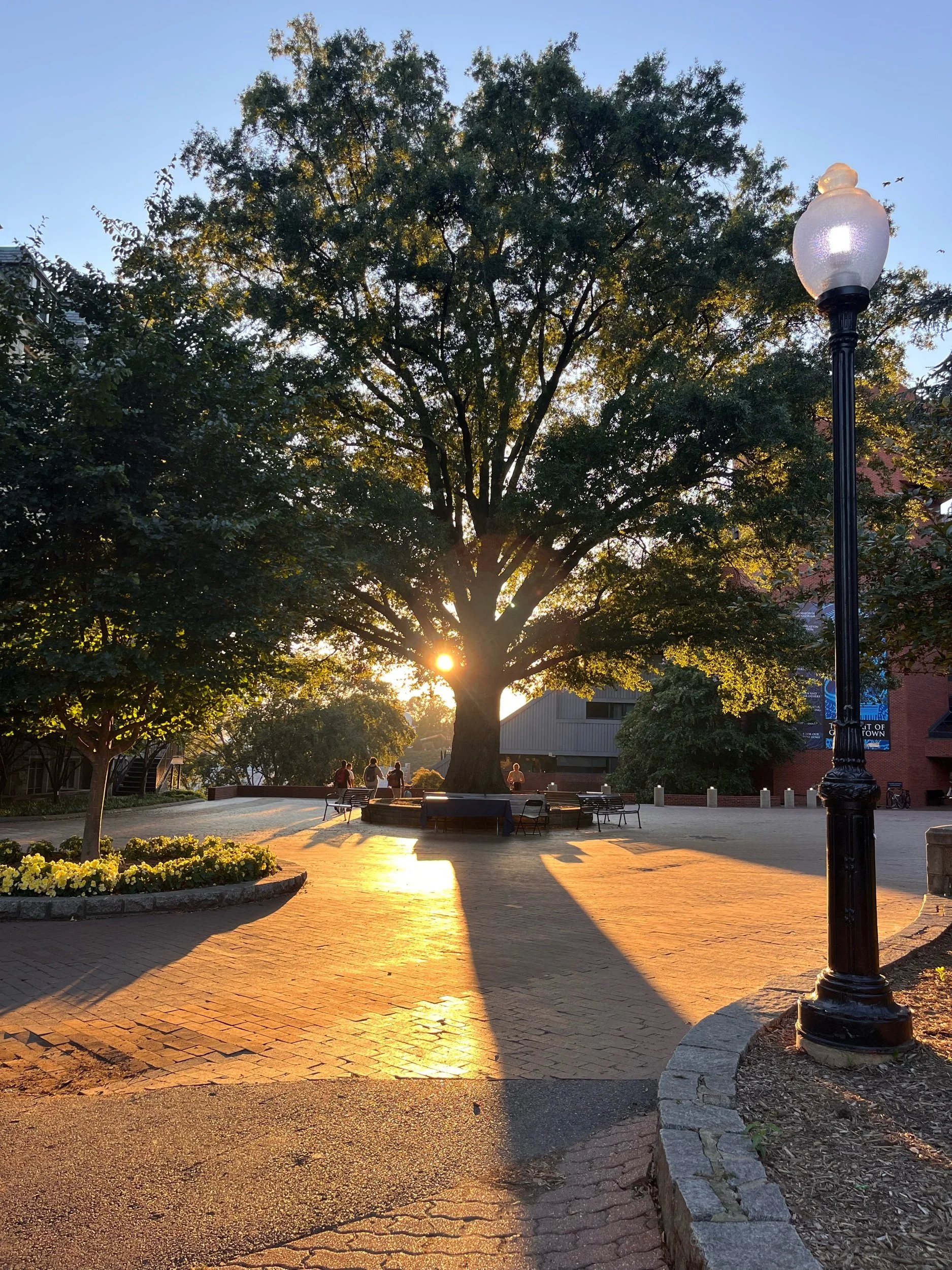While in Tunis, I stayed in an old mansion owned by the former Bey of Tunisia, just footsteps from Ibn Khaldun’s childhood seminary.
Over the summer, I had the opportunity to travel to Tunisia along with a group of brilliant academics from the Democracy & Governance program at Georgetown University. The country has undergone some immense changes in the past decade, not the least of which is that it alone has emerged from the smoldering ruins of the “Arab Spring” as a democracy. The experience was incredibly rewarding for me personally, as I have been fascinated with Tunisia since my time at a journalism startup, called Cont3nt (pronounced “Content”), where I recruited and handled confidential news sources from within Tunisia during the Jasmine Revolution.
Earlier this week, the Arab terrorist known as Abu Bakr Al Baghdadi was killed in the troubled region known as the Eastern Arab World. For the past 100 years in that part of the world, several millenarian movements have attempted to set up a universal Sunni Caliphate headed by an ethnic Arab to rule over all Muslims and do war with non-Muslims. That effort has largely opposed the idea of democracy, spurning it as an unholy form of government devoid of divine sanction. Baghdadi was famous for bringing together religious extremists with secular Arab nationalists known as the Ba’ath to further his goals for a Caliphate based in the Arab world.
Tunisia was once home to Ibn Khaldun, one of Islam’s greatest legal scholars and historians. He also happened to be one of the fathers of the Western Arab World (the “Maghreb”)’s philosophical tradition. While in Tunisia, I was lucky enough to pray daily in the mosque where Ibn Khaldun studied theology in the old medina of Tunis. While there, I spent a great deal of time chatting with the locals about the challenges the country has faced regarding the country’s democratic transition.
Arab Extremist Movements Don’t Reflect the Reality of Islam or the Arab & Muslim World
Extremists largely from the eastern regions of the Arab World have tried to steer Muslims away from democracy. They believe that only a pure-blood Arab can rule over Muslims as the Caliph of Islam. However, despite the success of extremists at global terrorism, most Arabs & Muslims across the world revile these extremists.
The battle between Islam and Democracy that Osama Bin Laden, Abu Bakr Al Baghdadi and other Arab millenarians have sought to paint is a bit of a nothing-burger. In the 1940s, Islamic religious leaders in Indonesia (home to the world’s largest Muslim population) formed a union across the country’s 17,000-island archipelago which openly declared Islam to be in favor of democracy and social pluralism. In India, two major figures in the democratic movement to establish the country were Islamic religious scholars: the first Prime Minister Sheikh Abdullah of Jammu & Kashmir and India’s first Education Minister & president of the Congress party, Maulana Azad. Turkish religious scholars have long signed off on democracy and political pluralism—including the exiled Fethullah Gulen as well as pro-government religious leaders. Before their overthrow by Arab nationalists, both Egypt and Syria experimented with democracy in the mid-twentieth century, with religious parties and figures vying for seats in their respective legislatures. All in all, more Islamic religious authorities of merit have supported democracy rather than have opposed it over the course of the past 100 years.
Tunisia’s Hopes
Many Tunisians expressed their hope that their country could become the “halal alternative” to the jihadism that is rife in Libya, Syria, Iraq and elsewhere in the Arab World. On multiple occasions and across Tunisia’s very fragmented political landscape, Tunisians insisted their society and culture represented the guardianship of traditional Islamic jurisprudence and religious doctrine which favored democratic pluralism (as argued by Sacheddina, Ahmed and others).
However, there is also increasing frustration at the failure of successive parliaments to parley meaningful reforms into law. Tunisia’s welfare-stye economy is highly statist, and the currency has devalued as much as 1/3 since its democracy came into being. While corruption is down, European tourism vanished after terror attacks brought the country to its knees in 2015. Reforms allowing for limited federalism in the country have been pushed through—and were badly needed: Tunisia is physically the size of the entire Atlantic seaboard. However, the country still does not have any justices appointed to the constitutionally-mandated supreme court as a result of years of division and mistrust by factions in the previous parliament who agreed only to legislate through consensus. This has meant that while the country is stable, its economy is on life support.
Still, in comparison to a time where the former Ben Ali regime actively used rape as a sanctioned tool of government policy, things are looking much better. Despite a terror attack this summer only steps away from where I had gone for a stroll with a fellow American ex-pat in the capital, Tunisians seem undeterred in their attempts to consolidate their democracy. Time will tell if the rest of the Arab World will adopt Tunisia’s approach, but there are signs that Malaysia, Pakistan, and others are following in the footsteps of Ibn Khaldun.





